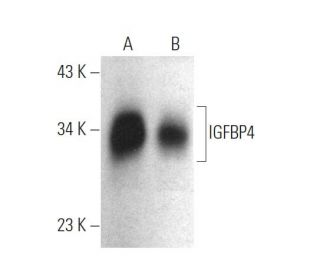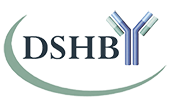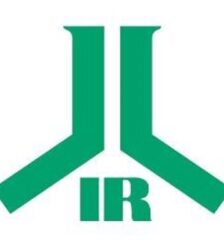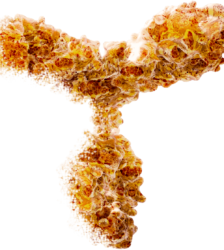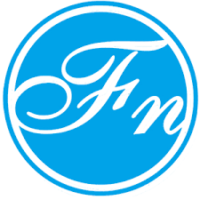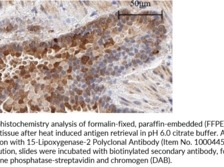Descrição
PN: SC-517440
Marca: Santa Cruz
IGFBP4 Antibody (A3) is a high quality monoclonal IGFBP4 antibody (also designated IGFBP4 antibody) suitable for the detection of the IGFBP4 protein of human origin. IGFBP4 Antibody (A3) is available as the non-conjugated anti-IGFBP4 antibody. The Insulin-like growth factor-binding proteins (IGFBPs), a family of homologous proteins that have co-evolved with the IGFs, serve not only as shuttle molecules for the soluble IGFs, but also confer a level of regulation to the IGF signaling system. Physical association of the IGFBPs with IGF influences the bio-availability of the growth factors, and their concentration and distribution in the extracellular environment. The IGFBPs also appear to have biological activity independent of the IGFs. Seven IGFBPs have been described, each differing in their tissue distribution, half-lives and modulation of IGF interactions with their receptors. IGFBP1 is negatively regulated by Insulin production. The IGFBP1 gene is expressed at a high level during fetal liver development and in response to nutritional changes and diabetes. IGFBP2, which may function as a chaperone, escorting IGFs to their target tissues, is expressed in several human tissues including fetal eye and fetal brain. IGFBP3, the most abundant IGFBP, is complexed with roughly 80% of the serum IGFs. Both IGFBP3 and IGFBP4 are released by dermal fibroblasts in response to incision injury. IGFBP5 is secreted by myoblasts and may play a key role in muscle differentiation. IGFBP6 differs from other IGFBPs in having the highest affinity for IGF-II. Glycosylated human IGFBP6 is expressed in Chinese hamster ovary (CHO) cells, whereas non-glycosylated recombinant human IGFBP-6 is expressed in E.coli. IGFBP7, a secreted protein that binds both IGF-I and IGF-II with a relatively low affinity, stimulates prostacyclin production and may also function as a growth-suppressing factor.
For Research Use Only. Not Intended for Diagnostic or Therapeutic Use.


